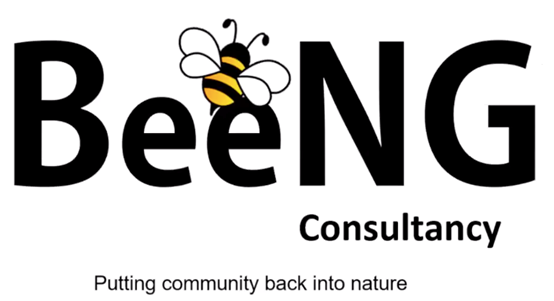Team 2B 2024: BeeNG Consultancy
Biodiversity loss through species extinction and habitat destruction is a major global concern, prompting governments, businesses, and society at large to find sustainable solutions to help biodiversity bounce back. In the UK, a commitment to Biodiversity Net Gain (BNG) is required for all development projects, in the form of on-site biodiversity net gain measures, a mix of on and off-site measure, or through the purchasing of BNG credits from the government which will be used for habitat restoration. The third option, The BNG credit market, is an exciting and novel solution though there are several uncertainties that all stakeholders must contend with: How do developers, governments, and landowners co-ordinate to find the most suitable habitats for BNG credit usage? How do we ensure community buy-in for regions where new habitats are being developed and maintained? How do we ensure biodiversity increase remains central to the process and avoid BNG becoming a box-ticking exercise with no real-world impact?
Our solution: BeeNG Consultancy “Putting Community back into Nature”

BeeNG (pronounced bee-en-gee) Consultancy is an environmental conservation consultancy firm focused on connecting landownders with suitable habitats to BNG credit schemes, all while placing local communities at the heart of habitat restoration.
This is achieved through a two-step process which we’ve called the ‘pre-implementation’ and ‘implementation’ phases. During pre-implementation, BeenNG experts liaise with landownders and local communities across the UK to find stakeholders interested in entering the BNG credit market. Environmental assessments are then conducted to determine an appropriate ecological baseline to be restored (e.g. wild flower meadow, woodland, etc). While innovative scientific methods such as paleo-data and ecological niche modelling will be utilised to determine said baseline, BeeNG will also conduct community surveys and consult oral histories from senior community members. This not only helps determines appropriate species for reintroduction but also facilitates community engagement from the onset of the BNG project.
Once BNG credits have been invested, BeeNG initiates the implementation phase. Here wild seed providers (e.g. the Eden Project Wildflower Bank) and expert ecologists are connected with landowners to begin habitat restoration. To monitor BNG at new sites, BeeNG ecologists will utilised a suite of advanced methods (e.g. remote sensing, eDNA sampling) to ensure net gain targets are being met. Additionally, BeeNG co-ordinates citizen scientist programs tailored to a wide range of demographics and educational engagement programs for school and university aged students to help monitoring efforts. These community centred initiatives are central to the BeeNG model as they not only produce usable data to track BNG targets, but also engender an appreciate for nature and ecological conservation in community members.
We at BeeNG believe that community involvement in BNG projects is the safest assurance against future biodiversity loss. If local communities gain first-hand knowledge of the BNG market, are consulted directly in the pre-implementation phase, and actively participate in the monitoring and maintaining of successful habitat restoration, we believe a strong sense of custodianship can be developed between the community and the newly established habitat. Effectively, the new habitat and increased biodiversity (plants, insects, birds, etc.) will be seen as an extension of the community itself. We believe this will make local communities highly protective of the surrounding wilderness and deter community buy-in for potential unsustainable/unnecessary developments in the area. Through these effort BeeNG ensures BNG now and for the future.
